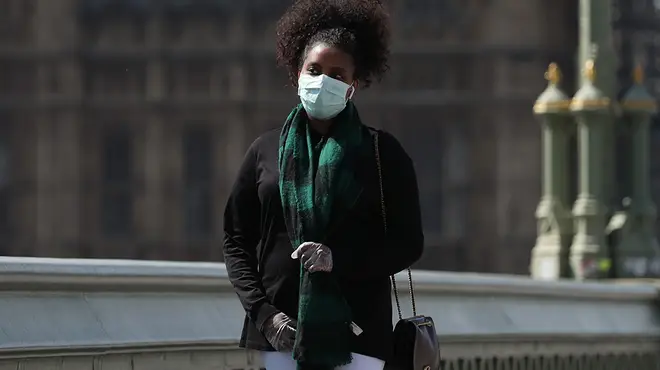
Simon Marks 4pm - 7pm
18 May 2020, 11:35 | Updated: 7 June 2023, 08:56

Chief medical experts have added anosmia to the coronavirus symptoms list - but what is it? And should you self-isolate if you have it?
The coronavirus symptoms list has been given an important update by the four chief medical experts of the country, including Chris Whitty, adding anosmia to traits of Covid-19.
In a statement, they revealed a high fever, a new and persistent cough and now anosmia were the three main symptoms to look out for when suffering with the virus which has swept the globe.
What is gastric coronavirus and what are the symptoms?
So what actually is anosmia? And should you self-isolate if you’re suffering with it? Here’s everything you need to know:

The loss of smell, and sometimes taste, is also known as anosmia. This usually happens when suffering with a cold, nose blockages and can also be caused by head injuries and an infection.
Government guidelines suggest that if you notice any changes in your sense of smell and taste, along with a high fever or new, persistent cough, you should self-isolate.
The chief medical officers said: “The individual’s household should also self-isolate for 14 days as per the current guidelines and the individual should stay at home for 7 days, or longer if they still have symptoms other than cough or loss of sense of smell.”

Coronavirus: Doctor gives advice on symptoms, treatment and cures
After monitoring recent cases, the four chief medical experts have said they’re now confident anosmia is a main symptom.
They said in their statement: “We have been closely monitoring the emerging data and evidence on COVID-19 and after thorough consideration, we are now confident enough to recommend this new measure.”